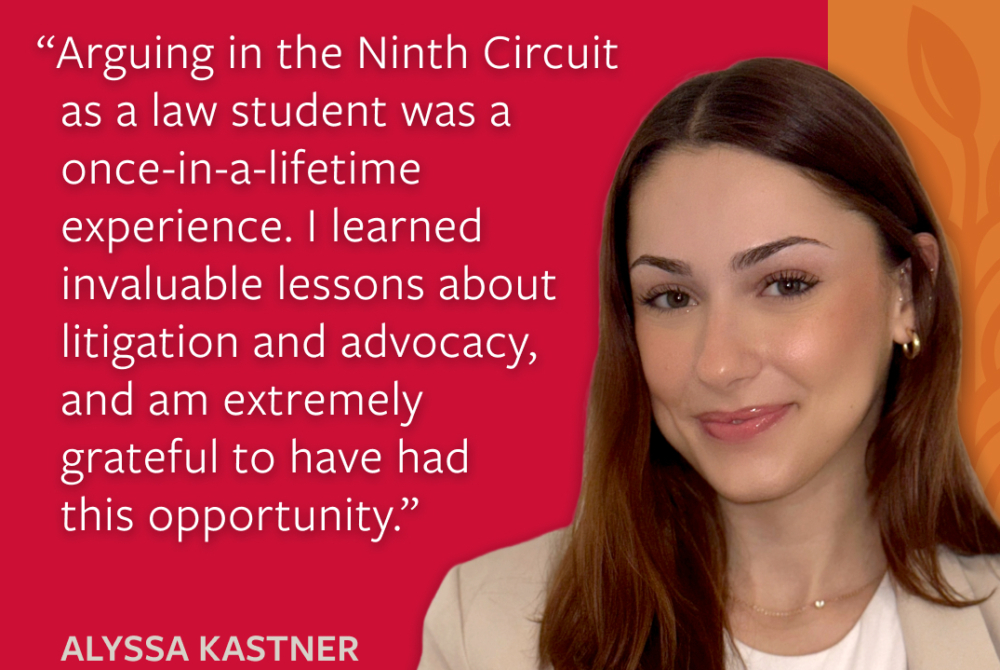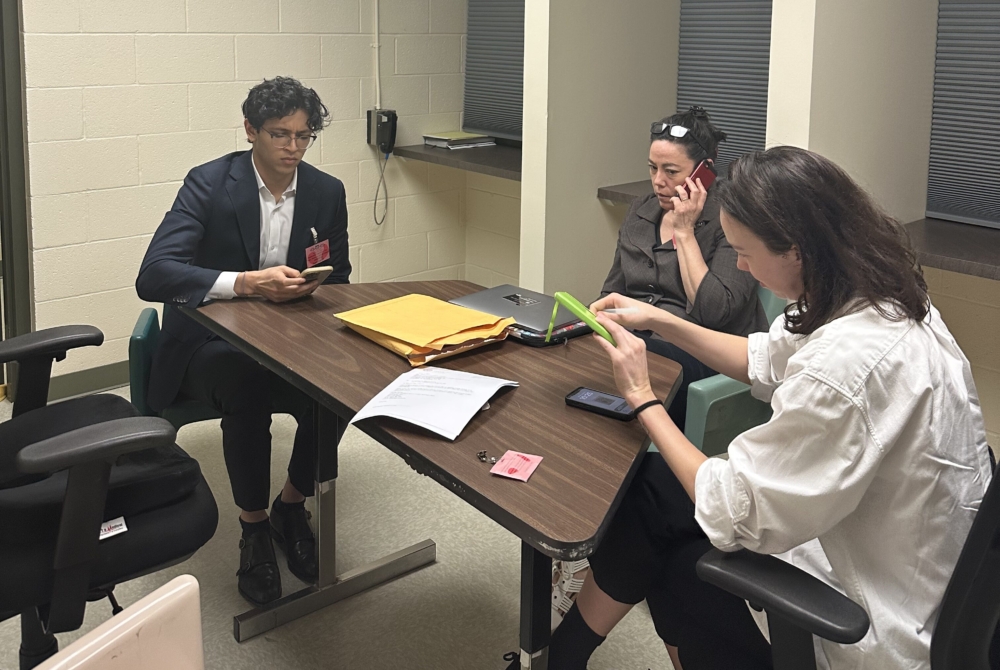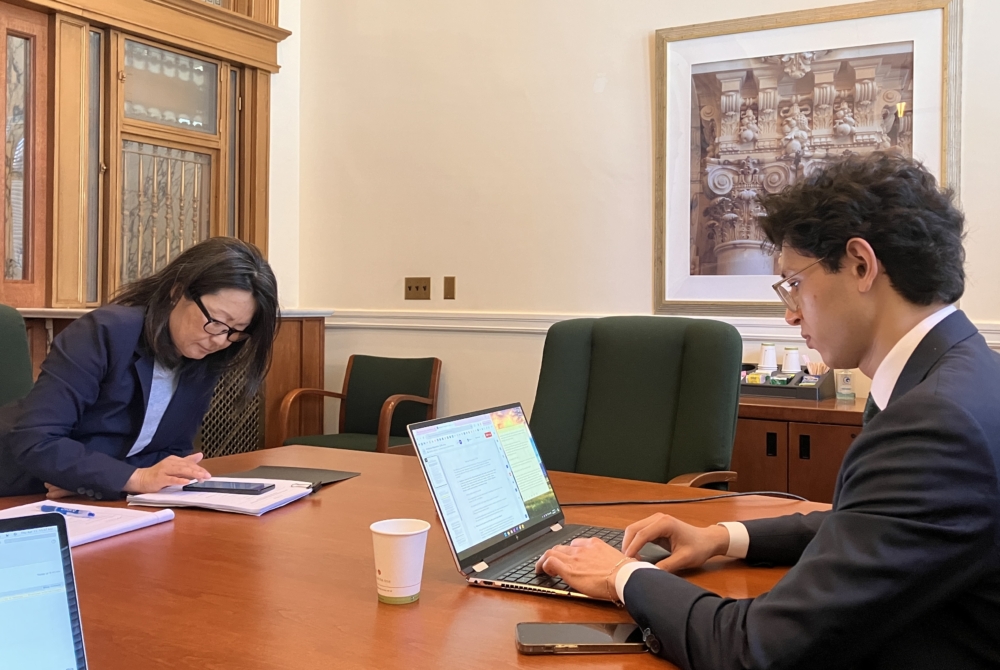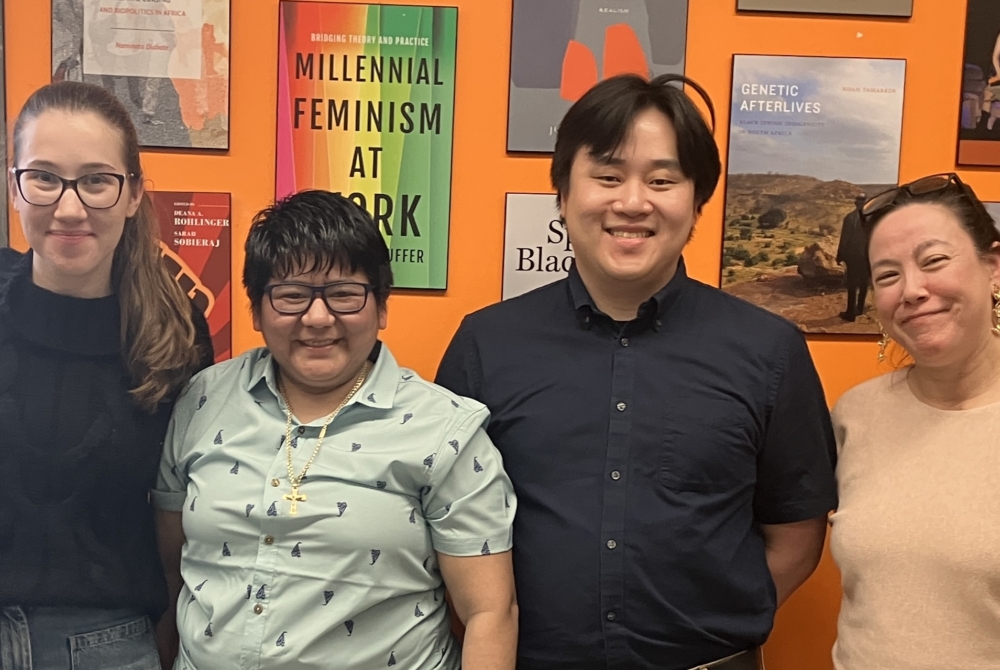This website uses cookies
We use cookies to ensure that we give you the best experience on our website. If you continue to use this site we will assume that you are happy with it.
Clinic students develop a deep understanding of the complex law governing immigration relief. Students also acquire practical skills, including advanced persuasive writing techniques and cross-cultural client communication.
Clinic students do the following:
The Asylum and Convention Against Torture Appellate Clinic is part of the Law School’s Migration and Human Rights Program.
Current students can learn more about the clinic experience and participant selection on the current student community website.

Alyssa Kastner ’24 gave an oral argument in front of the United States Court of Appeals for the Ninth Circuit in April 2024 on behalf of “GC,” a Mexican national who grew up in the United States. Alyssa argued that the Immigration Court and Board of Immigration Appeals failed to properly consider the client’s mental illness when finding his crime “particularly serious.” She also argued that when denying withholding of removal, the agency failed to take into account whether the Mexican government was actually able to protect the client from further torture. As Estelle McKee, instructor in the clinic, notes, “The chief judge’s compliments to Alyssa after the argument were well-deserved–Alyssa devoted significant time and effort to this argument, and it paid off!”

A clinic client celebrates after winning asylum and obtaining release from detention.

From left: Sahil Patel ’24, Clinical Professor of Law Estelle McKee, and Christine Brittain ’23 prepare for client meetings in a detention center in California.

Clinic students represented a young man who fled gang violence in El Salvador, winning a remand from the Ninth Circuit and an opportunity for him to apply for asylum and withholding of removal. Pictured here are Ninth Circuit Mediator Kay Suk and Sahil Patel ’24; after this mediation, the government agreed to remand the case to the Board of Immigration Appeals so that CML could seek asylum, withholding, and Convention Against Torture protection.

From left: Leila Mosteika ’25, clinic client IHF, Ryan Lee ’25, and Professor Estelle McKee. After remands from the Second Circuit and Board of Immigration Appeals, the clinic helped IHF win asylum, withholding, and relief under the Convention Against Torture.
IHF is an LGBTQ+ client who underwent severe persecution in El Salvador, and who has become an advocate in her own right. With Professor Jane Juffer (Feminist, Gender and Sexuality Studies Program, Department of English), IHF’s letters in detention were published in a book, and her art, created while she was in detention, has been displayed in the Johnson Museum.

“This clinic gave me the opportunity to build practical skills in a high stakes legal context. Professors Yale-Loehr and McKee provided excellent structure and guidance but allowed us to take our own initiatives in crafting the strongest possible appellate brief on behalf of our client.”
“Without a doubt, this clinic has been one of the most challenging research and writing experiences in law school. We have developed our appellate advocacy skills and learned the intricate workings of immigration law. The most important skill we’ve learned is to put our client first…knowing that our client’s life hung in the balance, it was our job to write a brief that was legally sound, but that still managed to tell our client’s story.”
“Our client is filled with so much hope. This fight for her asylum status is one of the most important fights in her life…not getting asylum, withholding or CAT threatens to send her back to Somalia. Yet speaking to her on the phone, she is filled with graciousness and gratitude. “Thank you, thank you,” she repeats. “Just one thing,” she will say apologetically, before asking about the likely outcomes of her case.
“Especially where there are numerous issues informing each other in one case, I had to learn to organize, balance and think critically about where each fact belonged. Working on this case has been a test of sifting through various bits to tell our client’s story in a manner that will get him relief…fulfilling my role as an advocate for my client and a writer for an objective (though this term now seems generous) reader at the BIA. These are surely skills that I will carry with me throughout my career and skills whose utilization I hope have presently gained my client relief.”